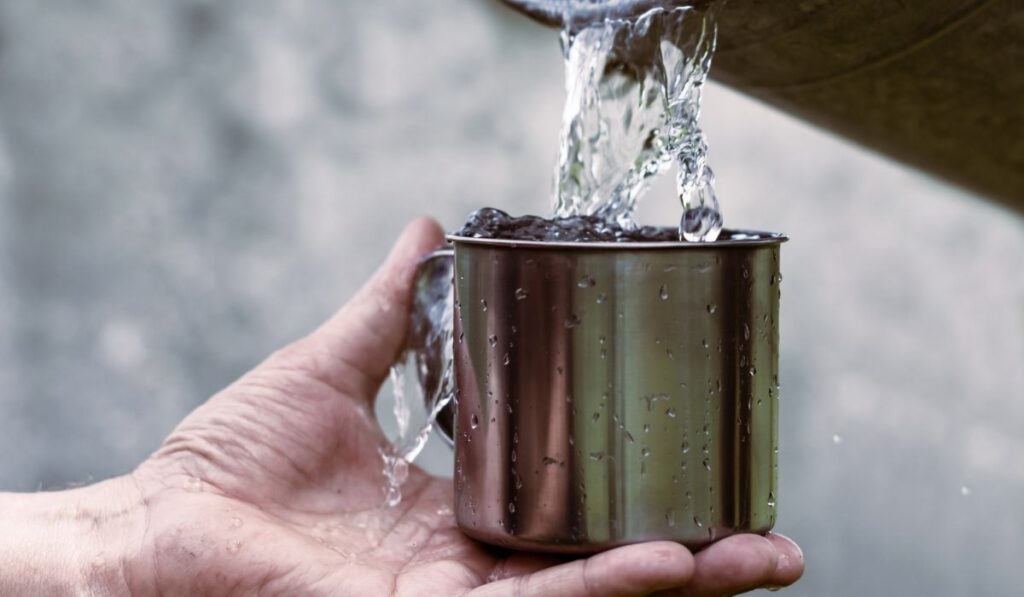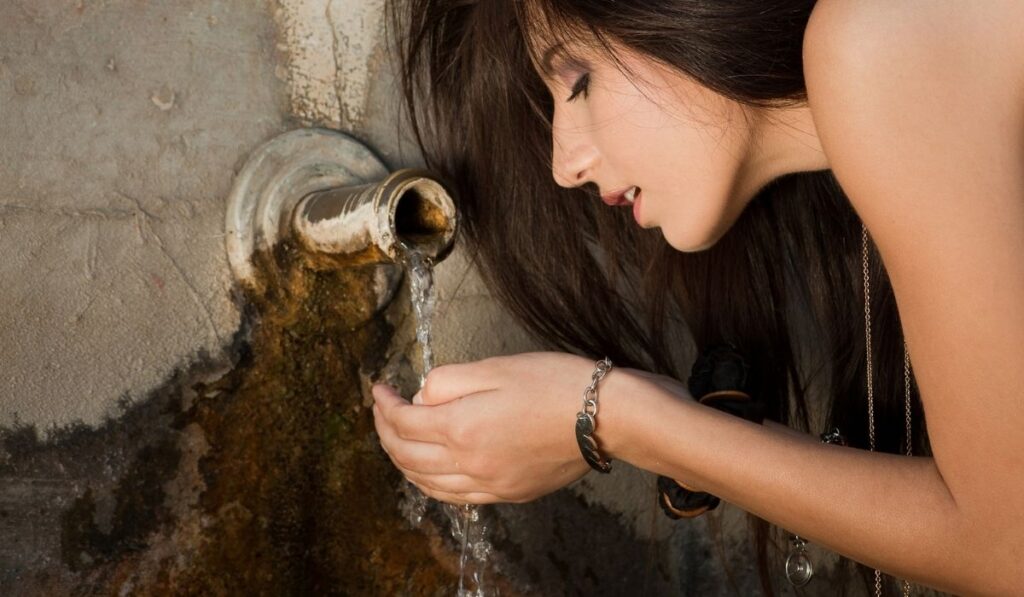Many homes rely on well water for everyday household activities. While well water often gets a bad wrap, the real story behind well water and health is a bit more complex than a simple yes or no answer. In most cases, well water is generally safe. But, what about for your teeth?
Well water can contain minerals, metals, and other compounds that can have negative effects on your teeth. Testing your water is the only way to know what materials, if any, you should be worried about. Pay close attention to fluoride levels as they are the most important.
It can be a struggle to find the answers to your oral health questions, especially when well water is involved. In most cases, you should be fine. But without testing, there’s no way to know. If you have questions about well water and your teeth, we’ve got the answers – just read on!
Is Well Water Bad For Your Teeth?

If your home’s water system relies on well water, you may have a few concerns when it comes to drinking from the tap. Since this water doesn’t go through the same municipal water treatment as regular tap water, it may have extra minerals and compounds in it. So, will well water affect your teeth?
Well water can contain certain types of metals and minerals. While not all of these are bad for your teeth, some are. You should get your water tested fairly regularly to determine mineral, metal, and fluoride content for optimum safety.
And don’t worry – this doesn’t have to be an expensive or arduous process. Simple at home tests like the Watersafe Store Premium Drinking Water Test Kit for Well and Tap (on Amazon), or an option that can measure fluoride too like the VARIFY 17 in 1 Premium Drinking Water Test Kit (also on Amazon), can give you the full picture of your well water quality without the hassle of taking water samples to a lab. And these tests aren’t too expensive, either.
In most cases, drinking well water is generally safe. It won’t cause you any distress either in your stomach or in your mouth so long as mineral levels aren’t too high. You also need to be wary of fluoride levels. Fluoride does quite a lot of good for your enamel and your teeth. But too much, or too little, can have some ill effects.
Too much fluoride would cause a condition on your enamel called fluorosis. This condition causes the appearance of chalky white spots on the teeth. This also makes the enamel more prone to cavities since the enamel is poorly mineralized and brittle.
Too little fluoride can also cause enamel imperfections, weakened enamel, and an increased risk for cavities. It is very important to have well water tested or you run the risk of being highly prone to cavities all your life!
Some minerals can also cause tooth discoloration. So, if you’re a regular drinker of well water, you should be on top of testing to make sure that you aren’t doing any damage to your teeth.
Only a test will give you the full range of minerals and other compounds that may, or may not, be in your water. This should be done regularly as well. Sometimes the mineral content of well water will change.
Does Well Water Stain Your Teeth?
The biggest concern when it comes to well water and your teeth is discoloration. The last thing you want is to have off-color teeth just because you’re drinking from a well instead of a municipal tap. While not all minerals and metals cause discoloration, some do.
Well water can stain your teeth. If the fluoride content is too high or other minerals and metals are present, it can cause discoloration of your teeth. The only way to know what’s in your water is to have a professional come and test the source.
One thing that many people don’t understand is that different minerals, metals, and compounds will have different discoloration effects on your teeth. Let’s take a look at a few:
- Iron, manganese, and silver — Black staining
- Copper and nickel — Blue-green stain
- Iodine — Brown stain
- Fluoride — Yellow to brown stains
If you’re at all worried about teeth staining, you should have a test performed immediately. There are compounds that you can add to your water that will take away a lot of the nasty compounds and chemicals that can cause discoloration.
Can Well Water Be Good For Your Teeth?

While some compounds can cause ill effects for your teeth, that’s not the whole story when it comes to well water. The fact is, many minerals and metals present in well water may help with oral health.
The only way to know is to test your water and maybe have a chat with your dentist. But, when it comes to a quick overview of the health benefits, what do you need to know?
Well water can contain minerals and metals that promote teeth health and overall strength. Additionally, the presence of fluoride means your teeth’s enamel is protected. Understanding the composition of your water is the first step to finding the health benefits of your tap.
Since well water can be good for your teeth, you shouldn’t be averse to drinking it or using it to brush your teeth. Of course, the only way to know for sure how safe your water is is to test.
Outside of oral health, there are also other benefits to drinking well water. First, you should understand that through the purification process, minerals are stripped from the water. While clean, they lack the natural composition of minerals and metals we’d usually get from a natural source like a well.
When you drink water from a municipal source, it moves through your body and strips away your body’s minerals and metals. Drinking well water or mineral water can help replace those minerals.
Is It Safe To Brush Your Teeth With Well Water?
So, when it comes to performing your daily oral health tasks like brushing your teeth, is well water a no-go? If you live in a home with well water, you’re probably already asking this question. This is especially important for homes with young children, too.
Brushing your teeth with well water is a generally safe activity. Of course, you’ll need to explore testing options to be absolutely sure. If levels of fluoride and other compounds are safe, then you will have no issues brushing with the water from your tap.
Testing is the key here. Not every well source is going to work. The only way to know is to have the water tested and tested regularly. The main thing you need to pay attention to is the fluoride content.
We’ve already learned that too little, or too much, fluoride can be an issue. Since this is the most consequential compound in terms of mouth health, you should pay close attention to the fluoride levels.


